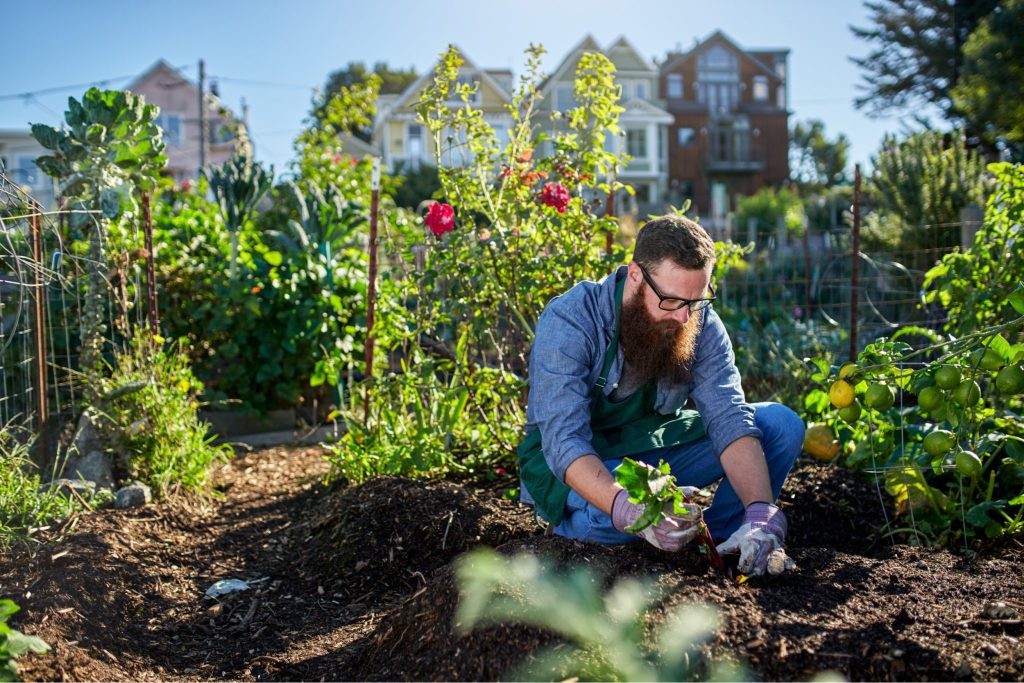Simple Tips for Living a More Sustainable Lifestyle
Living a more sustainable lifestyle is possible, and there are several simple tips that you can follow to help you go green. Here are a few ideas: Recycling and disposing of waste properly is important; support local agriculture by planting a garden; and reduce your energy consumption.
Table of contents
Reduce Your Energy Consumption
In a world where our environment is being degraded, there are many things we can do to reduce our energy consumption and make a positive impact on the earth. From making small changes to your daily routine to incorporating energy-efficient appliances into your life, you can reduce your carbon footprint and help improve the planet’s sustainability.
Reducing your energy usage can save you money on your monthly utility bills. You can also help the environment by switching to energy-efficient light bulbs. LEDs use 75% less electricity than incandescent lights and last 25 times longer.

It’s easy to take steps to reduce your energy usage. For example, by unplugging devices you don’t use, you’ll save electricity. Or if you have a laptop or cell phone, you can plug it into a surge protector and turn it off.
Choosing energy-efficient appliances and electronics will also help you reduce your energy usage. For example, a low-flow showerhead will use only 4.5 litres of water per flush.Living in smaller houses will also help you reduce your energy usage. A smaller house requires less lighting and furnishings. You can also get an energy-efficient windows and skylights.
Carpooling can also be a way to reduce your energy usage. By carpooling, you can keep more vehicles off the road, reducing your carbon emissions.
Recycle and Properly Dispose of Waste for Living a More Sustainable Lifestyle
If you want to live a more sustainable lifestyle, it’s important to recycle and properly dispose of waste. Proper waste management prevents the environment from suffering toxic effects. In addition, it reduces the cost of disposal and helps preserve natural resources.
Many businesses are aware of the need to act on environmental sustainability. Companies are developing systems to minimize the impact on the environment, as well as making improvements in their sustainability performance.

Sustainable waste management is generally defined as any activity that includes collection, treatment, and recycling of waste. It can be used for many different purposes, such as composting, using biodegradable elements for fertilizers, and even creating energy from the waste.
Some of the materials that can be recycled are glass, metal, plastic, and even inorganic elements. Various businesses accept e-waste for recycling, such as Staples, Best Buy, and Goodwill.
One of the biggest contributors to single use waste is plastic packaging. Using reusable shopping bags helps the environment by keeping the plastic out of landfills. You can also donate unwanted items, such as your old electronics or furniture, to a charity.
Other ways to recycle include making your own cleaning products. For example, you can use old glass bottles to make hand soaps and glass cleaners.
Plant a Garden or Support Local Agriculture
Whether you are interested in living a sustainable lifestyle or re-designing your current one, there are many simple tips to help you go green. One of the best ways to do this is by planting a garden or supporting local agriculture. In addition to providing your family with nutritious food, your gardening efforts will also improve the health of the environment.
For example, you can avoid wasting water by choosing plants that don’t require a lot of water. This can be done through a variety of water conservation techniques.
Other ways to go green include composting and reducing your waste. You can also reduce your carbon footprint by shopping locally. Shopping at the local market instead of at the supermarket can reduce carbon emissions.

Choosing Fair Trade foods is another way to support local producers. However, these products may cost more. It’s also possible to choose organic. Organic gardening methods will use fewer chemicals, which is better for the environment.
Another benefit of buying produce from local sources is that you are avoiding carbon emissions from transportation. If you shop at the grocery store, your food travels hundreds of miles before reaching your home.
When you plant a garden, you are also helping the planet by minimizing plastic pollution. You can recycle your waste and turn it into organic fertilizer.
Final Thought
In conclusion, living a more sustainable lifestyle can be achieved by simple actions that have a positive impact on the environment. One of the best ways to go green is to use energy-efficient equipment, recycle, properly dispose of waste, and support regional agriculture by growing a garden or purchasing locally produced food.
You may lessen your carbon footprint and contribute to a healthy environment for future generations by incorporating minor changes into your everyday routine. Keep in mind that every small bit of effort counts in the quest for a future that is more sustainable.
To learn more about energy and energy saving, you can click here.
FAQ
A sustainable lifestyle decreases an individual’s environmental impact, conserves natural resources, and helps future generations. This lifestyle encourages energy conservation, waste reduction, and social and economic equality.
Living in a tiny house powered by renewable energy and made of eco-friendly materials is a sustainable lifestyle. Grow food in a garden, compost food waste, and use reusable containers instead of single-use plastics.
A sustainable lifestyle reduces environmental harm, conserves resources, and benefits future generations. Energy and water conservation, renewable energy utilization, trash reduction, and social and economic equality can achieve this.
Sustainable living involves limiting consumption, preserving resources, minimizing waste, and fostering social and economic equity. This means choosing to cut energy use, use renewable energy, reduce waste, and support local communities and economies.
Living 100% sustainably entails cutting energy, resource, and waste usage. Use renewable energy, reduce consumption, and reduce trash to reduce your environmental effect. Living in a modest home, growing food in a garden, composting garbage, utilizing reused containers, and supporting local communities and economies are examples.





